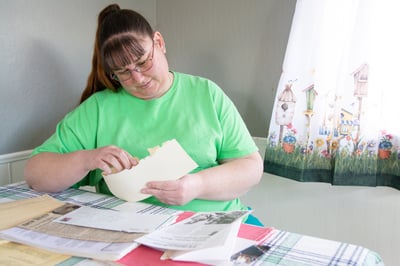5 Tips to Budget Your Way Through a Crisis
May 4, 2020 Homeownership Habitat News Tips & Tricks Housing Counseling

The COVID-19 pandemic has us grappling with new circumstances – and a new financial reality. While emergency savings are the key to weathering lean times, this crisis has hit all of us in an unprecedented way. Here, our Housing Counseling team has five tips to help you get through it.
1. Organize your bills by priority.
While everyone’s situation is unique, as a rule of thumb, you want to give higher priority to payments that:
- Help you stay housed – bills like rent, mortgage, property taxes, and HOA dues.
- Keep your utilities connected.
- Protect your income – these are costs that help keep you working, like transportation or car payments, car insurance, and childcare.
- Keep you out of additional financial or legal trouble – payments like child support, alimony, student loans, and tax liens that might incur financial or legal penalties or even get your wages garnished.
- Maintain your coverage – Don’t let medical insurance lapse. If you have a medical emergency, you want to make sure your costs are covered. Plus, Californians pay a penalty if uninsured.
While credit card payments and medical bills are important, if you’re forced to choose – prioritize the above needs. Even if you have collection accounts, don’t ignore those higher-priority bills to pay a debt collector, unless you are being sued. However, you don’t want to leave any of these debts for too long, or you’ll risk financial and legal consequences.
2. Cut back on those extras and find new places to save.
Take stock of your lower-priority and variable expenses and find as many places as you can to cut, even just a little. You’d be surprised at how much a few dollars saved here and there can add up!

- Eliminate services you can do without for the time being. Perhaps that’s cable, Netflix, or Hulu, or a membership you’re not using.
- Look at your food costs and cut back by eating out less, and making a weekly meal plan based on coupons and grocery deals you find.
- Cut back on your car trips to save on gas.
- Lower your thermostat.
- Renegotiate your cell phone contract for a lower cost plan.
- Check with your providers to see if you qualify for low-cost programs for essential services like utilities, cell phone, prescription drugs.

3. Talk to your creditors.
That’s right. If you have to miss a bill payment, contact your creditors right away and explain the situation. Some may be willing to work with you and make a repayment arrangement, change the due date so it lines up with your payday or benefit schedule, or forgive the late payment fees.
4. Rotate your bills.
Of course, all expenses are important, and ideally you want to keep on schedule with all of them. However, if you must, you can rotate the bills you pay each month – prioritizing those high-need bills above. It’s not an ideal situation, but it can prevent you from losing your car, home, or utilities – a short-term fix while you work on a long-term solution.
5. Ask for help.
Some organizations offer financial assistance like one-time rent or utility payments. Call 211 to get connected to health and social services resources in your area. You can also connect with a HUD-Certified Housing Counselor, like our full-time team here at Habitat East Bay/Silicon Valley. We offer specialized assistance and can help you build a plan that keeps you on top of your bills and expenses, and lays a strong financial foundation for the future. Attend one of our free upcoming Zoom workshops about managing your expenses in a crisis, or find us anytime – 510-803-3373 to reach a Housing Counselor in Oakland, 408-620-3411 to reach one in Milpitas, or on the web at https://www.habitatebsv.org/services/housing-counseling.
Join the Conversation
Leave Us a Comment!
We love hearing from our community. Let us know what you think by leaving us a comment below.